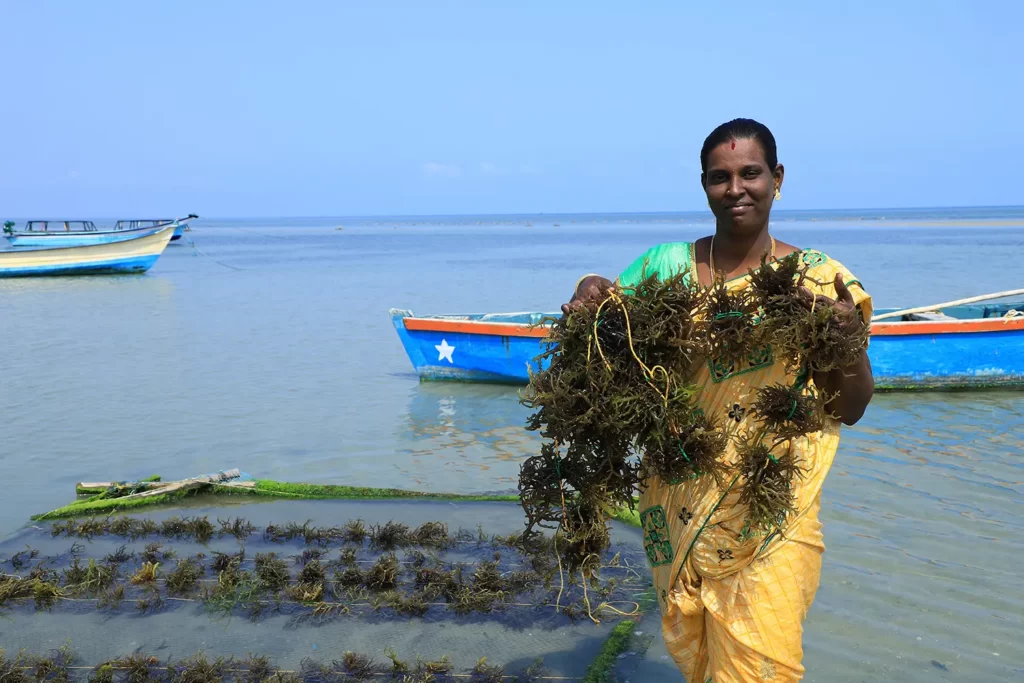As more and more people around the world get interested in seaweed farming, India has big plans to boost and upgrade its small-scale production of this underwater plant. Seaweed is getting a lot of praise for being eco-friendly and nutritious, so India wants to step up its game. Right now, India is only responsible for a tiny 0.02% of the world’s seaweed production.

The India’s Seaweed Mission wants to start growing seaweed along its 7,500-km (4,660-mile) coastline and increase production from 30,000 tonnes to 11 million tonnes by 2025.
India is planning to set up a seaweed park in Tamil Nadu to handle wet and dried seaweed, along with model farms, nurseries, and recipes that cater to the taste buds of Indians.
Wheat, rice, and other carbohydrate-loaded grains are like the go-to for food security in the world’s most populated country. However, fans of seaweed can’t help but rave about its awesome health perks, endless possibilities in processed foods, and eco-friendliness.

Unlike other crops, it can be grown without needing extra land or fresh water, which is a big deal because climate change is messing with the weather and making it harder to grow food.
Aside from sushi and salads, seaweed extracts – agar, alginate and carrageenan – are used as thickening and gelling agents, and are in high demand from a number of industries including food processing, biostimulants, cosmetics, and even making alternative plastics for packaging.
They are used to set yogurt, make meat products more tender, and go into jams, jellies and ice-creams. Seaweed also trickles into food supply chains as organic fertilizers and animal feed. It’s extracts make food supermarket-friendly, and provide a vegan alternative to animal-based gelatin.

People are becoming more interested in seaweed production as countries worldwide are working harder to find ways to protect the environment while also promoting farming. Additionally, there is a growing focus on incorporating climate-friendly modifications into our diets.
The global seaweed market was worth an estimated $17.85 billion in 2021, according to Polaris Market Research, and is expected to grow 10% yearly as coastal countries including India aim to increase production.
Reference- Polaris Market Research, Context, National Geographic, Press Information Bureau Feed






